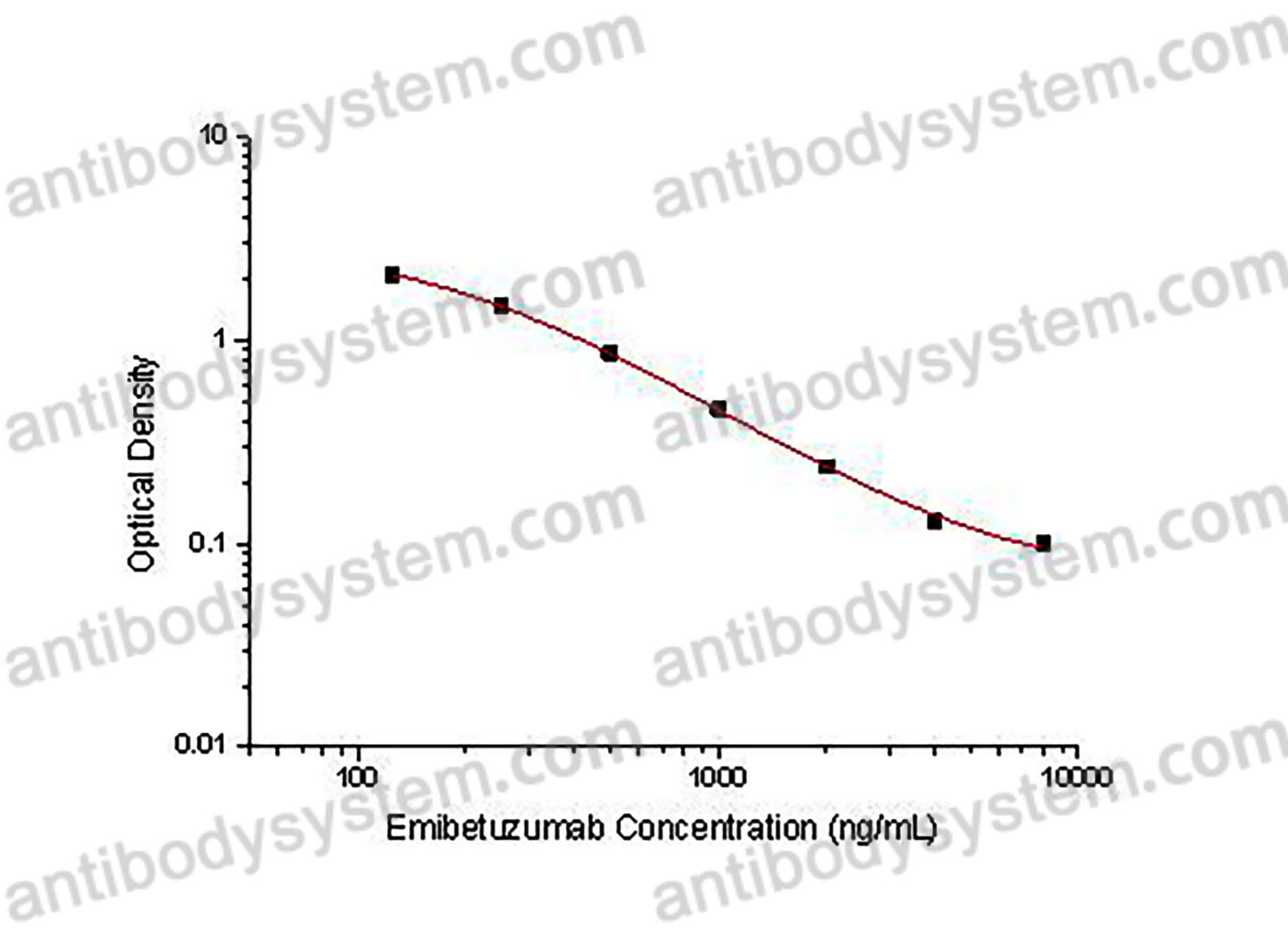Catalog No.
KDC34201
Description
PRINCIPLE OF THE ASSAY This assay employs the quantitative competitive enzyme immunoassay technique. Recombinant Human MET has been pre-coated onto a microplate. Standards or samples are premixed with biotin-labeled antibody and then pipetted into the wells. Emibetuzumab in the sample competitively binds to the pre-coated protein with biotin-labeled Emibetuzumab. After washing away any unbound substances, Streptavidin-HRP is added to the wells. Following a wash to remove any unbound enzyme reagent, a substrate solution is added to the wells and color develops in inversely proportion to the amount of Emibetuzumab bound in the initial step. The color development is stopped and the intensity of the color is measured.
Applications
Used for the quantitative determination of Emibetuzumab concentration in serum and plasma.
Detection method
Colorimetric
Sample type
Plasma, Serum
Assay type
Quantitative
Range
125 - 8,000 ng/mL
Sensitivity
89.12 ng/mL
Precision
Intra-Assay Precision (Precision within an assay): <20%
Three samples of known concentration were tested sixteen times on one plate to assess intra-assay precision.
Inter-Assay Precision (Precision between assays): <20%
Three samples of known concentration were tested in twenty four separate assays to assess inter-assay precision.
|
|
Intra-Assay Precision |
Inter-Assay Precision |
||||
|
Sample |
1 |
2 |
3 |
1 |
2 |
3 |
|
n |
16 |
16 |
16 |
24 |
24 |
24 |
|
Mean (ng/mL) |
2982.0 |
890.5 |
304.9 |
3404.9 |
958.9 |
274.7 |
|
Standard deviation |
510.2 |
69.5 |
41.1 |
553.2 |
76.6 |
32.6 |
|
CV (%) |
17.1 |
7.8 |
13.5 |
16.2 |
8.0 |
11.9 |
Recovery
80-120%
Shipping
2-8 ℃
Stability and Storage
When the kit was stored at the recommended temperature for 6 months, the signal intensity decreased by less than 20%.
Alternative Names
LA480, LY-2875358, CAS: 1365287-97-3
Background
Emibetuzumab (as known as LY2875358) is a humanized immunoglobulin G4 monoclonal bivalent anti-MET antibody that blocks MET signaling. This drug was developed by Eli Lilly & Company and has been used in trials studying the treatment of Advanced Cancer, Renal Cell Carcinoma, Hepatocellular Cancer, Gastric Adenocarcinoma, and Non-Small Cell Lung Cancer, among others. In preclinical models, emibetuzumab inhibited growth of tumors that are dependent on MET, including tumors that exhibit HGF-dependent and HGF-independent biology. Administration of a single dose of emibetuzumab resulted in continuous reduction of MET protein expression for 14 days in mouse xenografts. Emibetuzumab demonstrated dose-dependent, single-agent activity in various MET-expressing tumor models, and additive effects were observed in combination with erlotinib for reducing tumor volume in lung cancer mouse xenograft models. In Phase 1 dose escalation studies, emibetuzumab monotherapy was well tolerated in patients with advanced solid tumors, including gastric cancer, with no dose-limiting toxicities.

